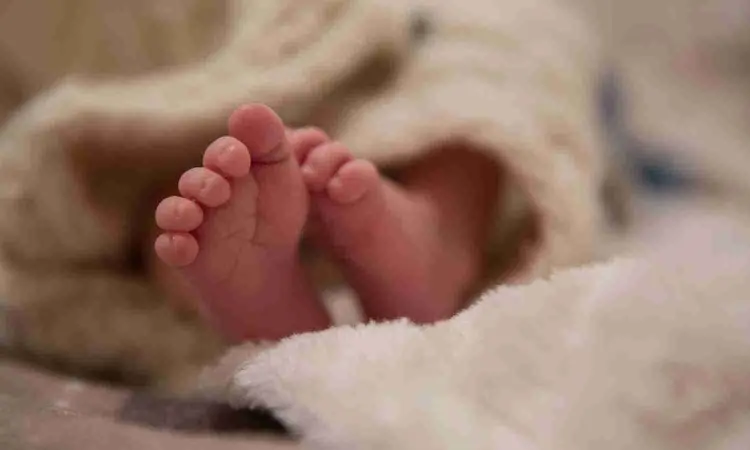- Home
- Medical news & Guidelines
- Anesthesiology
- Cardiology and CTVS
- Critical Care
- Dentistry
- Dermatology
- Diabetes and Endocrinology
- ENT
- Gastroenterology
- Medicine
- Nephrology
- Neurology
- Obstretics-Gynaecology
- Oncology
- Ophthalmology
- Orthopaedics
- Pediatrics-Neonatology
- Psychiatry
- Pulmonology
- Radiology
- Surgery
- Urology
- Laboratory Medicine
- Diet
- Nursing
- Paramedical
- Physiotherapy
- Health news
- Fact Check
- Bone Health Fact Check
- Brain Health Fact Check
- Cancer Related Fact Check
- Child Care Fact Check
- Dental and oral health fact check
- Diabetes and metabolic health fact check
- Diet and Nutrition Fact Check
- Eye and ENT Care Fact Check
- Fitness fact check
- Gut health fact check
- Heart health fact check
- Kidney health fact check
- Medical education fact check
- Men's health fact check
- Respiratory fact check
- Skin and hair care fact check
- Vaccine and Immunization fact check
- Women's health fact check
- AYUSH
- State News
- Andaman and Nicobar Islands
- Andhra Pradesh
- Arunachal Pradesh
- Assam
- Bihar
- Chandigarh
- Chattisgarh
- Dadra and Nagar Haveli
- Daman and Diu
- Delhi
- Goa
- Gujarat
- Haryana
- Himachal Pradesh
- Jammu & Kashmir
- Jharkhand
- Karnataka
- Kerala
- Ladakh
- Lakshadweep
- Madhya Pradesh
- Maharashtra
- Manipur
- Meghalaya
- Mizoram
- Nagaland
- Odisha
- Puducherry
- Punjab
- Rajasthan
- Sikkim
- Tamil Nadu
- Telangana
- Tripura
- Uttar Pradesh
- Uttrakhand
- West Bengal
- Medical Education
- Industry
Premature twins battled hernia, heart defect; discharged after 105 days in Cloudnine Hospital

Infant death
Chennai: Twin sisters, hailed as "miracle babies," received a new lease on life after being born prematurely at 24 weeks and undergoing critical surgeries at a hospital in Chennai.
Weighing a mere 620 grams (twin 1) and 720 grams (twin 2), the babies faced daunting challenges from the outset. They required surgeries to address hernia and a congenital heart defect known as Patent Ductus Arteriosus (PDA). For two months, they relied on ventilator support to aid their fragile respiratory systems, according to doctors at Cloudnine Hospital in Chennai.
According to a IANS report, “In this case, both the twins were born micro-preemies at 24 weeks and are indeed miracle babies as they had to undergo two major life-threatening surgeries for treating hernia and Patent Ductus Arteriosus (PDA), a congenital heart defect. Both the twins were very sick, and their survival was doubtful in the early days of birth,” said Dr Dhilip Kumar S, senior consultant – Neonatologist and Paediatrician at Cloudnine Group of Hospitals, Chennai, OMR branch, said.
Also Read:Fortis doctors successfully perform India's first heart explantation surgery
“They suffered from chronic lung disease and were on ventilator support for two months because their lungs were too immature to wean off the ventilator support. Many times we as doctors felt that these twins would not survive but patience and perseverance are the key to managing these extreme preterm babies,” Dr. Dhilip added.
The mother, aged 36, faced numerous complications throughout her pregnancy journey. Diagnosed with an incompetent cervix and grappling with chronic hypertension, fever, and amniotic fluid leakage, her pregnancy was already fraught with challenges. Despite undergoing cervical cerclage to temporarily address the cervix issue, premature opening and weakening of the cervix occurred at 24 weeks with persistent high blood pressure and fever.
Shortly after birth, the twins encountered further hurdles, including significant weight loss, breathing difficulties, and a slow start to their development. The babies had a drop in weight to 520 gm (twin 1) and 590 gm (twin 2) and required ventilator support.
Neither of the twin sisters opened their eyes for the first two weeks, and their length measured a little over 13 inches.
Later, twin 1 was diagnosed with stage 4 chronic lung disease, experiencing multiple lung collapses and unsuccessful extubation attempts, leading to prolonged dependence on oxygen for 90 days in the neonatal intensive care unit (NICU).
She was also diagnosed with an inguinal hernia due to immature abdominal wall muscles, necessitating surgery to correct the condition.
Twin 2 did not cry at birth and also exhibited a low heart rate along with skin bleeding. An echocardiogram revealed the presence of a large patent ductus arteriosus (PDA) -- a congenital heart defect where the ductus arteriosus fails to close after birth, news agency IANS reported.
While the ductus arteriosus serves as a vital foetal circulation route, allowing blood to bypass the lungs before birth, it should naturally close shortly after birth. However, in Twin 2's case, medical treatment failed to produce the desired response, resulting in the need for open-heart surgery to address the condition, the doctor said.
Following 105 days of stay at the hospital, the twins were discharged to return home while they weighed 2.2 kg (Twin 1) and 2.3 kg (Twin 2), respectively, the doctors said.
Kajal Rajput joined Medical Dialogues as an Correspondent for the Latest Health News Section in 2019. She holds a Bachelor's degree in Arts from University of Delhi. She manly covers all the updates in health news, hospitals, doctors news, government policies and Health Ministry. She can be contacted at editorial@medicaldialogues.in Contact no. 011-43720751


